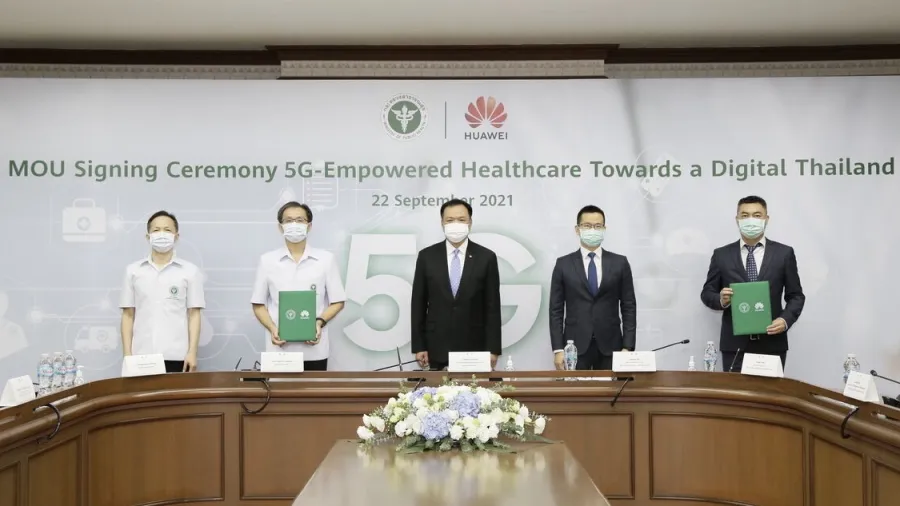
Huawei, Thai med department partner up for digital health services
This will establish a smart platform for advanced medical treatment.
Huawei Thailand and the Department of Medical Services (DMS) signed the 5G Empowered Healthcare Towards a Digital Thailand memorandum of understanding (MoU) on 22 September. It will establish a smart platform that will facilitate advanced medical treatment using state-of-the-art digital technology.
In cooperation with the National Cancer Institute and Rajavithi Hospital, the initiative aims to increase the efficiency of medical services and operations to improve the quality of healthcare services. During the event, there were demonstrations of a 5G smart ambulance, as well as 5G telemedicine and home isolation solutions for remote diagnosis and treatment of patients.
Thai Minister of Public Health Anutin Charnvirakul said, "The Department of Medical Services and Huawei will jointly explore the benefits of 5G in the healthcare field under this MoU. The joint projects will ensure better health services for Thai people. On this special occasion, I would like to thank Huawei for providing state-of-the-art equipment and extensive industry knowledge. My gratitude also goes to the Department of Medical Services for their contribution that led to knowledge transfer in healthcare."
Huawei Thailand CEO Abel Deng emphasised that Huawei is proud to team up with the DMS, the National Cancer Institute, and Rajavithi Hospital for this pioneering program that will help empower Thailand's healthcare system.
Under the two-year agreement, Huawei will provide 5G technology to the two partner hospitals, enabling the immediate upgrade of their existing infrastructure. It will also provide digital knowledge transfer, training and project supervision to hospital staff to enable them to operate efficiently and sustainably for the benefit of both medical staff and patients.


















 Advertise
Advertise


